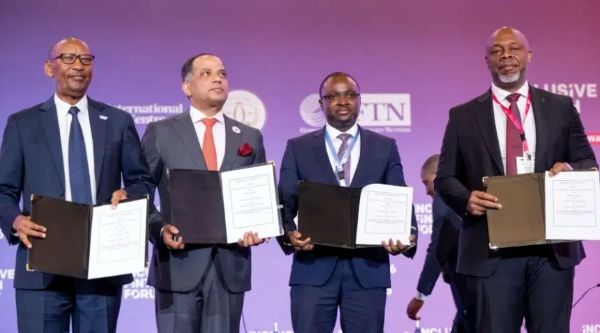Ghana and Rwanda Pioneer Africa’s First License Passporting Framework to Boost Fintech Expansion
Ghana and Rwanda have jointly launched Africa’s first License Passporting Framework, a groundbreaking initiative aimed at eliminating duplicative licensing requirements and facilitating regulatory harmonization between the two countries.
The framework allows financial technology (fintech) firms licensed in one country to operate in the other without the need for additional licensing, effectively streamlining cross-border transactions. This model is already widely used in Europe among EU member states, but Africa has long struggled with regulatory fragmentation that has slowed fintech expansion and financial integration.
Fintech firms in Africa have often cited inconsistent regulations and multiple licensing regimes as major barriers to cross-border operations—a challenge some industry players describe as “the tyranny of regulatory sovereignty.” The Ghana-Rwanda initiative seeks to address this by enabling financial institutions licensed in one country to seamlessly operate in the other, thereby fostering innovation, boosting financial inclusion, and accelerating economic growth.
The initiative is backed by the NextGen Digital Public Infrastructure Framework and key partners such as the Global Finance & Technology Network, the Pan-African Payment & Settlement System (PAPSS), and, crucially, the central banks of Ghana and Rwanda.
A Catalyst for Financial Inclusion and Economic Growth
Kwame Oppong, Director of FinTech and Innovation at the Bank of Ghana, hailed the initiative as a major step toward regulatory cooperation in Africa.
“This initiative is a groundbreaking milestone for Africa’s financial ecosystem. By reducing regulatory barriers and fostering collaboration, we are creating a more inclusive and integrated financial system that benefits all Africans,” he stated.
Similarly, a representative from the National Bank of Rwanda emphasized the significance of financial integration for economic development.
“Financial inclusion is at the heart of this initiative. By creating a more integrated financial ecosystem, we are empowering individuals and businesses to participate in the digital economy and unlock new opportunities for growth,” the representative noted.
A Step Toward AfCFTA’s Vision
The License Passporting Framework aligns with the broader goals of the African Continental Free Trade Area (AfCFTA), which is headquartered in Ghana. By enabling seamless cross-border financial transactions, the initiative complements AfCFTA’s vision of boosting intra-African trade and fostering regional economic integration.
However, experts caution that for the framework to deliver long-term benefits, it must be backed by strong regulatory coordination, widespread industry adoption, and sustainable implementation strategies. While establishing the framework is a crucial first step, its success will depend on execution—ensuring that it gains traction, addresses potential regulatory hurdles, and eventually expands to other African nations.







